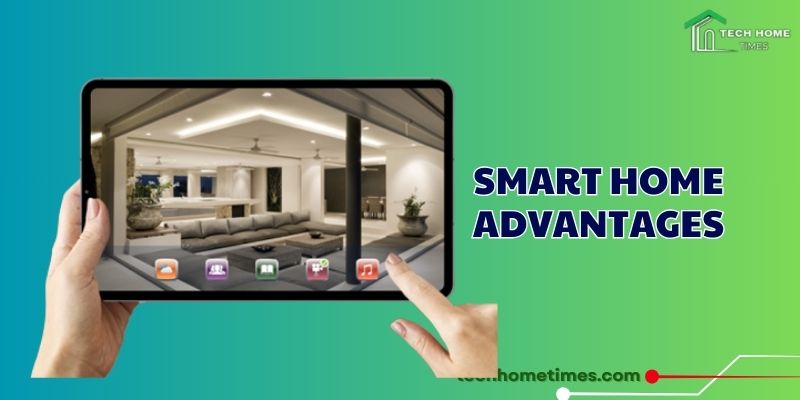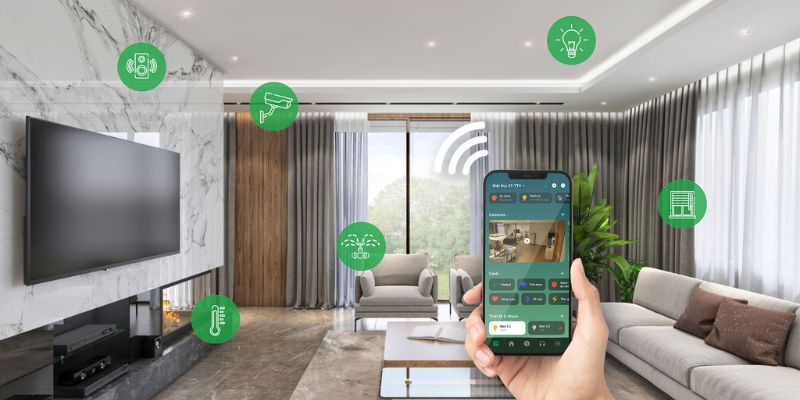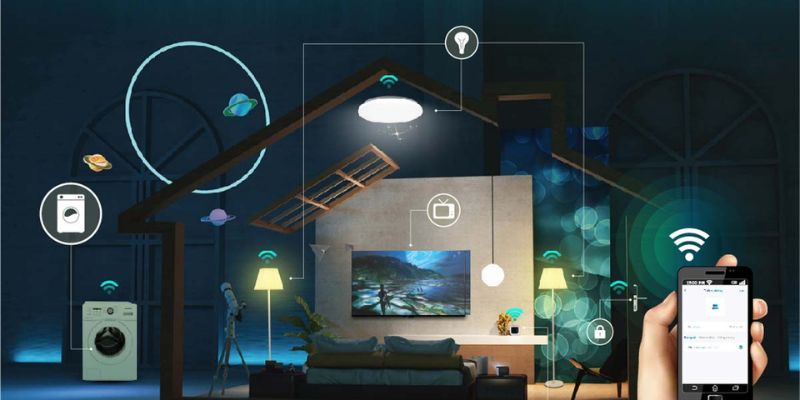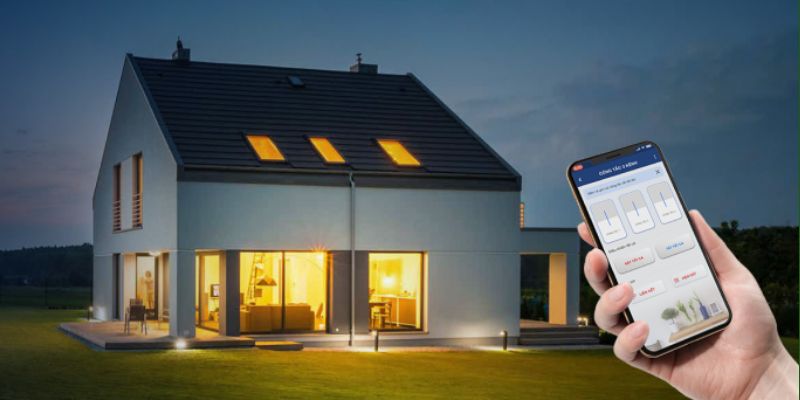Smart Home Advantages – Why Go Smart?

Why go smart? The smart home advantages offer a compelling answer, transforming your living space into a hub of efficiency, comfort, and security. In 2025, embracing smart technology means harnessing AI-driven devices to simplify life and enhance well-being.
Contents
Smart Home Advantages – Your “Why”

The smart home advantages are the driving force behind the global surge of connected homes, with over 500 million households adopting smart technology by 2025. These advantages stem from the integration of AI, IoT, and seamless connectivity, enabling homes to anticipate needs, optimize resources, and provide unparalleled convenience.
Smart homes automate routine tasks, from adjusting lights to scheduling appliances, freeing up time for what matters. A single voice command can orchestrate multiple actions, like preparing your home for bedtime, saving minutes daily that add up to hours weekly.
Smart devices optimize energy use, reducing utility bills by 15-25%, according to 2025 studies. AI-driven thermostats and lights adjust based on occupancy or weather, making homes eco-friendly and cost-effective, especially in energy-conscious regions like Vietnam.
AI-powered cameras, locks, and sensors provide real-time monitoring and alerts, offering peace of mind. Smart systems can detect threats and respond instantly, such as locking doors during suspicious activity, a critical smart home advantage for urban dwellers.
Smart technology tailors environments to individual preferences, like adjusting room temperatures or curating music playlists. This customization enhances well-being, making homes feel uniquely yours, a standout smart home advantage.
Smart homes support diverse needs, with voice controls and automation aiding seniors or those with disabilities. This inclusivity ensures everyone can benefit from smart home advantages, from young families to multigenerational households.
Smart Home Advantages in Action

To understand the smart home advantages, let’s explore three real-world scenarios in 2025, showcasing how smart technology transforms daily life across different contexts.
Busy Professional in Hanoi, Vietnam
Linh, a marketing manager, lives in a compact Hanoi apartment equipped with a Google Nest Hub and Philips Hue lights. The smart home advantages shine in her morning routine.
Her Nest Hub, acting as a smart home AI assistant, learns her 6:30 AM wake-up, automatically opening blinds, brewing coffee, and displaying traffic updates. Smart plugs schedule her air purifier to combat morning pollution, saving 10 minutes daily and reducing energy use by 12%. This seamless automation highlights the convenience and efficiency of smart home advantages, allowing Linh to focus on her demanding schedule.
Retired Couple in Rural Canada
John and Mary, retirees in a Saskatchewan farmhouse, rely on a Ring AI Security System and Ecobee Thermostat. The smart home advantages enhance their safety and comfort.
The Ring system’s AI cameras detect wildlife versus intruders, sending alerts only for genuine threats, while smart locks grant access to visiting grandchildren without keys. The Ecobee adjusts heating based on their daily walks, cutting energy costs by 20%. These features demonstrate how smart home advantages provide security and savings, tailored to rural, low-tech lifestyles.
Multigenerational Family in Mumbai, India
The Sharma family’s three-generation household uses a Samsung Family Hub fridge and Alexa-powered devices. The smart home advantages cater to accessibility and personalization.
The fridge’s AI tracks food, suggesting recipes for dietary needs, while Alexa assists their elderly grandmother with voice commands to control lights or call family, reducing mobility challenges. Smart sensors monitor room occupancy, optimizing cooling in India’s humid climate, saving 15% on bills. This scenario underscores the inclusivity and comfort of smart home advantages, uniting diverse family needs.
These examples illustrate how smart home advantages deliver tangible benefits—time savings, safety, and tailored comfort—across global settings, making smart homes a universal solution.
Why the “Why Not?” is Fading

Despite the clear smart home advantages, hesitations about adopting smart technology persist, often tied to cost, complexity, or privacy. However, in 2025, these “why not?” concerns are rapidly fading due to technological advancements and market shifts, making the case for going smart stronger than ever.
Previously, smart home setups were expensive, costing thousands. Now, entry-level devices like TP-Link smart plugs ($15) or Amazon Echo Dot ($30) make smart home advantages affordable. Financing options and modular systems allow gradual adoption, appealing to budget-conscious households in Vietnam, where urban growth fuels demand. The long-term savings—20% on energy bills—offset initial costs, neutralizing financial concerns.
Complexity once deterred non-tech-savvy users, but 2025’s smart home AI systems are intuitive. Apps like Google Home offer guided setups, while voice assistants like Alexa support Vietnamese and other languages, easing adoption. Matter protocol ensures device compatibility, reducing setup headaches. These advancements make smart home advantages accessible to all, from seniors to first-time users.
Data privacy concerns are valid, as smart devices collect user information. However, 2025 sees robust safeguards—end-to-end encryption, local data processing via edge AI, and transparent privacy policies from brands like Ecobee and Ring. Users can disable data-heavy features like facial recognition, ensuring smart home advantages don’t compromise trust. Regulatory frameworks in Asia, including Vietnam, further protect consumers, alleviating fears.
Early smart homes suffered from connectivity issues or limited scalability. Now, Wi-Fi 7 and mesh networks ensure reliable performance, even in large homes. Matter-compatible devices allow seamless expansion, from adding a single bulb to a full security system. This reliability enhances the appeal of smart home advantages, addressing doubts about long-term viability.
In Vietnam, where traditional homes dominate, smart technology was once seen as unnecessary. However, rising urbanization and awareness of smart home advantages—like air quality monitoring for Hanoi’s smog—are shifting perceptions. Social media platforms like X showcase success stories, normalizing smart homes and reducing cultural resistance.
The smart home advantages – convenience, efficiency, security, comfort, and inclusivity – provide a powerful reason to embrace smart technology in 2025. To Tech Home Times, by adopting a smart home AI system, you’re not just upgrading your home but investing in a future where living is effortless, sustainable, and tailored to you.






